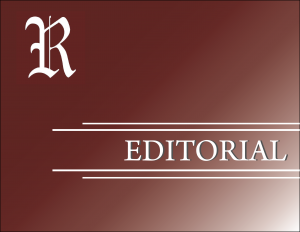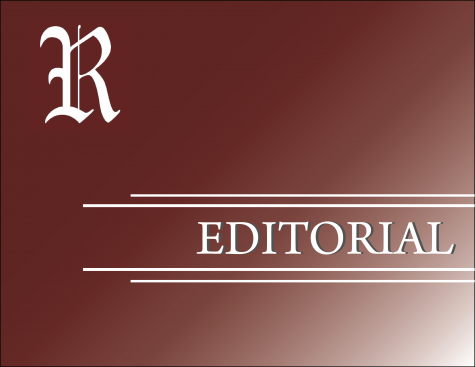Accessibility Should be a Priority
April 4, 2018

For the majority of Fordham students, wheelchair accessibility is not something that requires much – perhaps any – thought. But, for students with physical disabilities that alter the way in which they can navigate our campus, infrastructural shortcomings cannot go unnoticed.
According to the university website, Fordham provides accessible buildings on all of its campuses for students with disabilities. However, when looking at the breakdown of the Rose Hill campus, it becomes apparent that some locations are simply not wheelchair accessible.
Whether this inaccessibility exists in a full or partial capacity, it creates a schism on campus between those who are able-bodied and those who are wheelchair-bound. Most notably, Collins Hall is a location on campus that currently has zero accessibility. The lack of access leaves students in wheelchairs unable to participate in the multiple student organizations that take place within the building.
A prospective student with a physical disability learning that he or she cannot access the building that houses Mimes and Mummers, Theatrical Outreach Program and Fordham Experimental Theatre – popular organizations that provide a sense of collegiate community at Fordham – may decide to attend a different institution altogether.
In addition to not being able to see or directly involve themselves in theater productions once on campus, students with physical disabilities cannot access the many professors whose offices are located in the basement of the building, which incites an unnecessary academic hurdle. Thankfully, Facilities Management has now acknowledged United Student Government requests from both 2013 and 2015 to address the physical limitations in Collins Hall. A plan has been put into motion to renovate the building, and it should be fully accessible by the end of 2018 as a result.
The university investing between three and four million dollars to make Collins Hall accessible does speak volumes to its devotion to making Fordham a more inclusive environment.
The editorial board of The Fordham Ram would like to applaud the university for making this crucial adjustment that is long overdue. That being said, we hope this effort toward full accessibility does not stand alone. We understand that breaking ground on construction projects like this is often a slow process riddled with red tape.
For buildings like Collins Hall that are much older, it is difficult and costly to update to fully accessible standards. As outlined in the American with Disabilities Act of 1990, there are standards for new construction efforts, which require barrier-free designs to make buildings fully accessible. But buildings erected before 1992 are only required by law to be made accessible to people with disabilities to the most feasible extent.
Although there are logistical and financial hurdles, it is not impossible. Collins Hall was built in 1904 and will finally receive a renovation over 100 years later. We at The Fordham Ram would like this reconstruction effort to serve as a university-wide watershed moment in terms of making our community fully accessible in the near future.
The university must prioritize its older buildings as it brings modern additions to campus, considering whether or not it is possible to update those locations that have been historically closed off to part of the Fordham population.
The editorial board of The Fordham Ram spoke to a few students who use wheelchairs and deal with these challenges first-hand when maneuvering our campus. In these discussions, each student underscored that the topic is historically disregarded and, as a result, something that deserves increased awareness from both the administration and student body.
Cunniffe House does not have an elevator and neither does Tierney Hall, Queen’s Court or Martyrs’ Court. Due to extremely narrow hallways in Martyrs’ Court, it is unlikely that the building could ever be accessible in a full capacity, but we would like to see the university strongly consider the possibility of updating these locations.
In doing so, the university must also confront discrepancies in functionality between different buildings’ accessibility. For example, the McGinley Center has an elevator. However, it sometimes does not come level with the floor and the door closes very fast, demonstrating that a major location of student life currently has a faulty system in place.
The push buttons outside of the McGinley Center and Keating Hall’s side entrance are reportedly finicky. Cars and delivery trucks often block the area where the curb drops in front of McGinley Center. The ramp that leads to Career Services has been described as a dangerous joke for those who rely on it.
Keating Hall only has one handicapped bathroom stall in the entire building, which is occupied a majority of the time. The planters outside of Hughes Hall leave little space at the top of the ramp. O’Hare Hall could use a partial renovation for entering and exiting the building on the dorm side.
Ultimately, this process will take time and increased consideration. A new construction project cannot be completed overnight, but that does not mean there are not tangible things that Fordham students who may not consider accessibility on a day-to-day basis can do.
If it is not necessary to take an elevator, do not do so. If other bathroom stalls are open, do not use the handicapped stall, especially in a building where it may be the only available option for those students with a physical disability. If you are near a curb drop, do not choose that exact location to congregate with friends.
If you are planning a club meeting or on-campus event, work to secure it in a location that is accessible to all students – not just those who are able-bodied. Although many of us are not personally affected by issues of accessibility, we must make it a universal concern.
We at The Fordham Ram would like to see the entire university raise its level of awareness and common courtesy in order to meet the needs of a community that is all too often ignored.
A disability awareness club would be a great resource for students, whether able-bodied or not, to start a dialogue about how to best service each other at Fordham.
When spotlighting exemplary men and women for others during on-campus events or on bulletins in residential buildings, we must remember that the voices of the people with disabilities must be amplified, as well.
This accessibility problem is not unique to Fordham. Rather, ableism is a systemic issue that affects all facets of society. According to NPR, only a quarter of the city’s subway stations are accessible. If New York City is our campus, and Fordham is our school, we must work together to eradicate the systematic trend of exclusion of those who rely on wheelchairs for transportation.
Accessibility is something that continues to fall through the cracks due to lack of exposure or public outcry. We at The Fordham Ram would like to see our community prioritize this change.


If you want a picture to show with your comment, go get a gravatar.